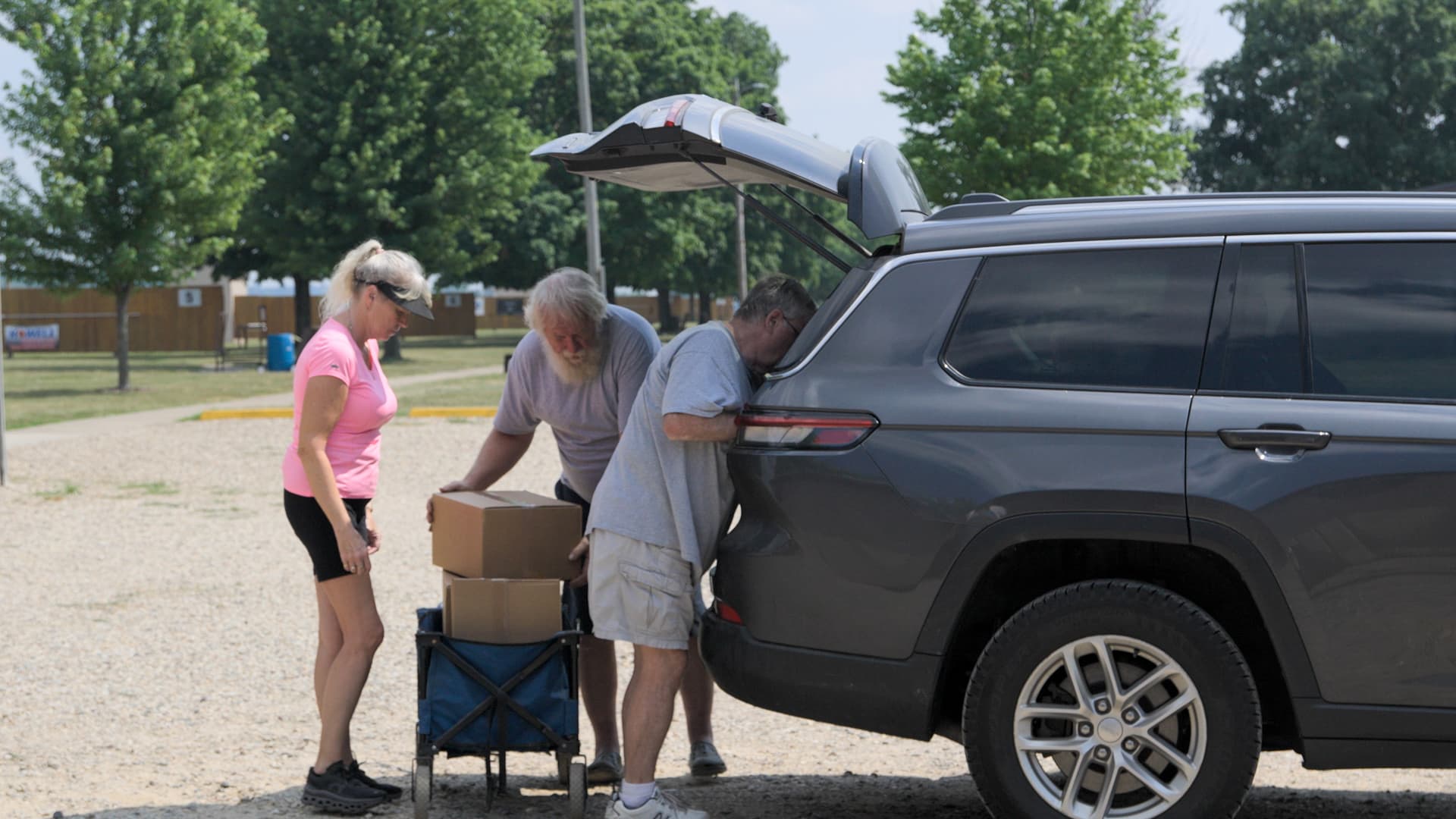How a Rural County United to Turn 40 Meals Into 20,000
Peoria / Woodford County, Illinois

Hunger in Woodford County, IL
In Spring Bay and neighboring towns, summer breaks the routine that keeps kids fed. The previous year's program, which required daily on-site dining, managed to serve only 40 meals all summer.
"One in five rural children go without lunch. That is what pushed me to act."
Joe GreerSite Supervisor
With more than half of students qualifying for free or reduced-price meals, the gap left hundreds of children without support. Transportation barriers, shift work, and rigid schedules kept most families away. Staci Coussens, a SNAP-Ed educator with University of Illinois Extension, noted that transportation was a real issue — so the site opened in early mornings and late afternoons to meet families on their commute.
The Partnership That Solved It
Through state outreach, local leaders teamed up with the Ujima Hunger Coalition to launch SUN Meals To-Go. The model replaced daily on-site meals with a weekly pickup: seven breakfasts, seven lunches, and shelf-stable milk per child in one stop. Ujima managed the logistics while the church, pantry, and U of I Extension stepped in with volunteers, outreach, and record-keeping.
"On Ujima's side, operations ran exactly as expected. What Brian told me to expect and what he delivered was identical, week after week."
Staci CoussensSnap-Ed, University of Illinois Extension
Making It Work
An unlikely partnership with The Peoria Trap and Skeet Club solved the challenge of where to serve. Closed on Mondays, the space offered exactly what was needed: a wide lot for cars and a shed for food storage. Pickups were set to working hours — early mornings for parents heading to shifts, late afternoons for families driving home. Neighbors ran the lane and handed out boxes, familiar faces from church, school, and the pantry made the stop feel easy and natural. “It was like Christmas,” Joe Greer said, recalling the way children’s eyes lit up when he passed them a box.
The Results
Seven Weeks of Impact:
- 20,000+ meals distributed
- 300+ children registered
- 225 children served weekly on average
- 500× increase from the previous summer
Parents noticed the difference. Some used the savings to buy fresh produce. Others said steady meals gave their kids more time for play and learning, easing the summer slide and keeping children ready for school. Volunteers saw it too.
"There were hugs and tears. You can't replace that. You can't buy it. You can't bottle it."
Joe Greer
The Community Embrace
The effort drew people in rather than wearing them out. While families waited, staff and volunteers connected them to WIC and SNAP. Skeptics who doubted the food at first changed their minds once children tried it and came back excited. By the end of the summer, the program had become visible enough to draw local coverage, with 25 News Peoria featuring the site in its final weeks.
Why This Matters
Woodford County proved that non-congregate service can reach families who never make it to daily on-site programs. A single weekly pickup overcame the barriers of distance and work schedules. With Ujima handling compliance and logistics, local partners could focus on families themselves. For state agencies and funders, the lesson is clear: high reach, minimal burden, audit-ready service, and a model ready to repeat.
What This Community Built
By the close of seven weeks, the county had done more than run a program. It had shown up for its children. Volunteers set alarms before dawn, braved 95 degree days, and never missed a week. More than 20,000 meals went home with dignity, and the team is already planning for the next summer.
For communities considering the approach, Staci Coussens put it simply:
"Absolutely go for it. We made it through the hurdles, and with Ujima handling compliance there is no reason not to partner. You are set up to feed hundreds of kids quickly and do it the right way."
Staci Coussens